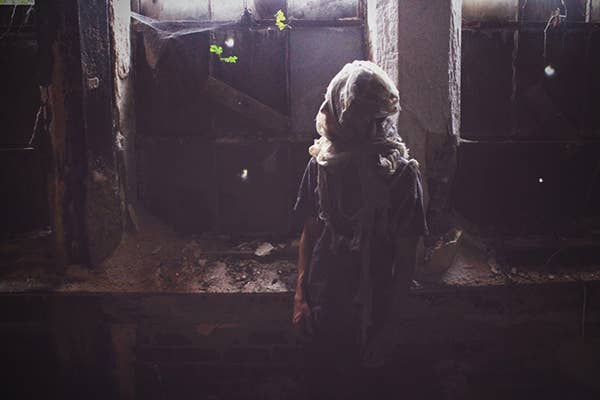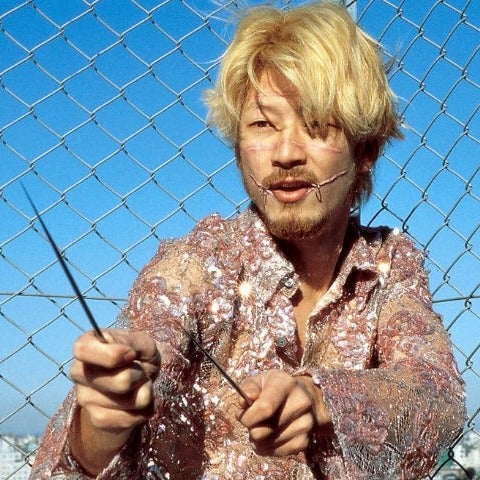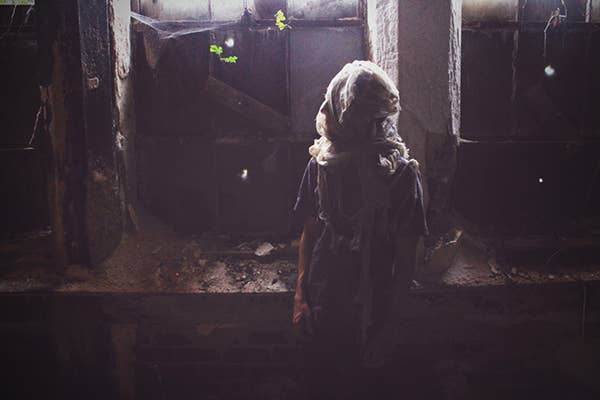1.

Image via Orchid Mantis
Daily Discovery is a feature that highlights a new or recently discovered artist who we’re excited about. See the rest of our Daily Discoveries here.
There’s something absolutely fascinating about the obsolete. Technology has come so far, but sometimes it’s the most primitive of technology that remains the most interesting. Analog equipment is inherently worse than digital recording equipment, and yet it has a character to it that cannot be matched by all the advancements in technology in the world. It’ll sound weird to some people, but sometimes music is better simply because it’s worse.
That fractured ethos has made its way into a number of highly lauded records, and for good reason. A lo-fi aesthetic can do wonders for texture, adding a tactile feel to what might otherwise sound flat and lifeless. Take the music of synth wizard Tobacco’s most well-known project Black Moth Super Rainbow for example: his music works so well because it sounds so damaged. It brings to mind a band in a forest somewhere my a wooden shack, recording songs for an era that will never truly exist.
It’s a faux sense of nostalgia that works in favor of the music, rather than against it. It’s not a pop record pretending to be throwback, it’s reinventing what’s become before by sounding old and new at the same time. Creating a sense of place and feeling through sounds alone isn’t easy, but certain artists have found a way through fucking with the music themselves.
That’s where Orchid Mantis comes in. Taking the techniques of decay used by the likes of Tobacco and William Basinki and running with them, Thomas Howard’s music as Orchid Mantis completely warps the concept of time and place. Like chillwave but considerably sadder, his work takes a pinch of each of his disparate influences and distills them into a fragile and run-down take on pop music.
His Bandcamp page describes his music as such, in fact: “found sounds, tape collages, and pop songs about forgetting.” There’s nothing particularly flashy about his music, but that’s what makes it so appealing. There’s a sense of earnestness to his brittle sound, peeling away any layers of polish through tape manipulation to reveal the unfiltered intention behind the music. There’s a sense his music is a living, breathing entity.
The sense of place conjured by his sound is as mysterious as it is vivid. With his particular recording methods and forgotten sounding aesthetic, each of his releases so far come across as the type of tape one might stumble across in the back of a dusty record shop, and yet here it is on the internet.
Read an interview with Orchid Mantis below.
How would you introduce yourself and your music?
Orchid Mantis is a musical project I started in 2014 to attempt to incorporate the sounds and influences I had recently become enamored with: tape manipulation, loops, sampling, unusual recording methods, ideas like re-purposing sound and intentionally obscuring [or] degenerating sound to evoke space into my own traditional-style pop songwriting. Certain songs and releases can often emphasize either the more experimental aspects or the more pop aspects, which means there’s a certain openness in what Orchid Mantis could become. I’m just as interested in approaching songs as imaginary spaces or environments as I am in writing something really catchy.
Your music is kind of like a combination of The Disintegration Loops with Washed Out or Phil Elverum’s more accessible side, and it sounds wonderful. When describing your music to someone else I also described it as old-school emo filtered through Twin Peaks‘ The Roadhouse bar. What processes do you go through to get the sound that you have on your records?
That Twin Peaks reference is a great way to describe my music. I imagine most of it as soundtracking sort of half-dreaming, surreal headspaces, something like the feeling of Twin Peaks as well as Lynch’s other work. Not quite reality, but some off angle of it. Generally, I’ll arrange the samples I’m using as well as some synths in Ableton, and then bounce that onto my 4-track tape recorder. Then I’ll add my own instruments, vocals, etc. along with whatever effects I deem necessary (usually a lot). With a lot of the ambient stuff I record, I’ll usually slow the tape speed to varying degrees, which can make things sound really hazy and disorienting sometimes.
Where did the name for the project stem from? Stylistically speaking it seems like a brilliant descriptor of your sound.
About the name, I’d always thought the Orchid Mantis had an interesting appearance and somehow I felt like the concept of the animal mimicking nature—orchids—made sense for the project since, at the time, I was trying to make music primarily about the feeling of being alone and isolated in natural environments (forests, mountains) and trying to create music that was evocative of those places.
Is the lo-fi sound of your music out of necessity or is it a stylistic choice? It gives it quite a forgotten quality, as in it feels nostalgic for something that hasn’t happened, similar to Boards of Canada in a sense.
The lo-fi recording quality has always been a stylistic choice that came about from me being obsessed with artists like Boards of Canada, early Black Moth Super Rainbow, Dirty Beaches, etc. However, it has always felt important to my vision of whatever track I was recording. I like the forgotten quality it evokes, like you said, how it can blur the music’s age and make it feel older than it is. I was constructing tracks out of a lot of material sampled from old, obscure folk and psychedelic music, and I was adding my own vocals and guitar to it, so recording to tape also just seemed appropriate to help everything mesh together. In the future, you can expect some of what I release to be in better fidelity, when the songs call for it, while other stuff could sound even more warped and distorted, we’ll see. I’m becoming more comfortable recording digitally in Ableton, so ideally I’ll be able to blend the more degraded sounds with clearer ones and achieve greater clarity, etc.
So would you say that your tendency to create something inspired by nature comes from a desire to create a feeling? A sense of place can do a lot to elevate music, and it seems that you’re going for something a little more interested in feeling rather than an inherent story.
Definitely, but it can differ from song to song. What first compels me in a sound is always the way it makes me feel, how it might remind me of a place or memory. So I try to build on that, and let what I’m imagining inform the structure and the melodies as well. Part of why a lot of my music can sound hazy or slightly distorted is to mimic the way age blurs memory. My lyrics are that way as well. I can always point to specific events that inspire what I write, but I’m never faithful to the “story”, I just try to write stream-of-consciousness about how the moment felt. That’s always what I’m concerned with.
Listen to Orchid Mantis’ debut album Hessdalen Light below, and check out the rest of his discography here.

